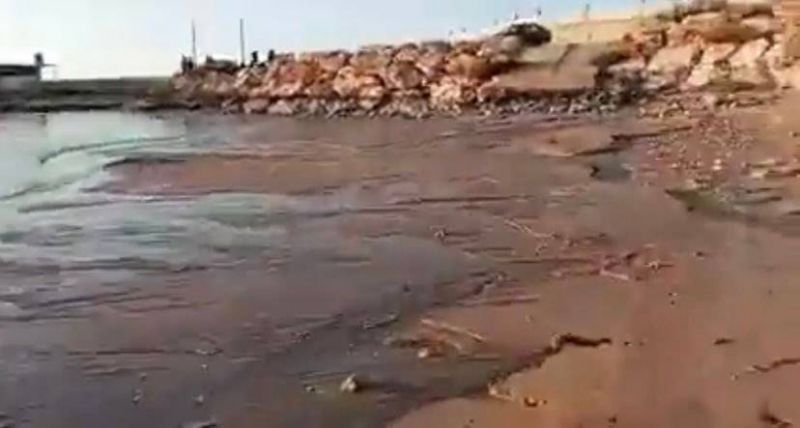
Screenshot of video circulating on social media claiming that the sea water levels in Lebanon are "unnatural." (Credit: Michel Hallak)
BEIRUT — Pictures of a low tide along Lebanese coastal regions have been circulating over the weekend on social media, causing frenzy over the possibility of a tsunami in the Mediterranean sea. The director of the National Council for Scientific Research Milad Fakhry assured L'Orient Today that the phenomenon was natural and there was no need to panic over a potential disaster.
The fear of a Tsunami was triggered by the early-February earthquake which devastated Turkey and Syria and was strongly felt in Lebanon.
Pictures provided by L'Orient Today's local correspondents in South and North Lebanon show shores in Akkar and Sour where the sea had retreated several meters past its usual level.
No earthquake recorded in the Mediterranean
"There is no need for any fear or panic over a possible tsunami in Lebanon. Tsunamis happen when an earthquake takes place in the sea, which hasn’t happened in the Mediterranean," Fakhry said.
“There is no truth to what is being circulated about the sea's retreat due to the inevitability of the arrival of tsunamis, as no earthquake was recorded in the Mediterranean that could cause such waves."
“Tsunamis are usually fast-occurring. The Turkey earthquake happened over two weeks ago and even then no earthquake was recorded at sea...beware of spreading panic and fake news,” Fakhry added.
Regular sea tides
Fakhry assured that sea levels in Lebanon are normal and that "regular sea tides occur which may cause sea levels to slightly change."
Due to the narrowness of the Strait of Gibraltar (connecting the Atlantic Ocean to the Mediterranean) and its enclosure by land, the Mediterranean sea typically experiences small-amplitude tides.
Platforms monitoring the tide in Lebanon record on average two high and two low tides per day.
In a statement made on Sunday night, the National Centre for Marine Sciences explained that the low tide observed was normal and "affected by the movement of the planets, especially the position of the moon and its movement."
Since the Feb. 6 earthquake, fears have grown in Lebanon and small-magnitude tremors have since been recorded.
Additional reporting by Muntasser Abdallah and Michel Hallak

